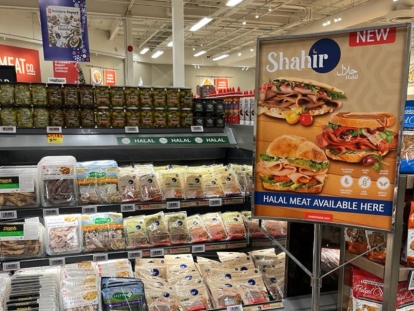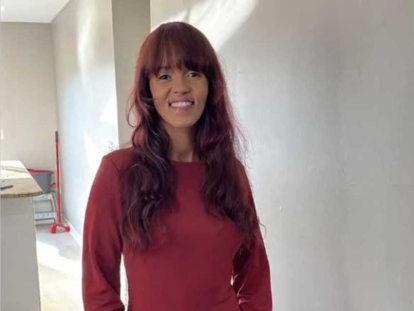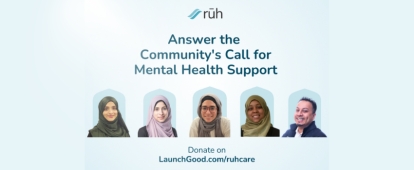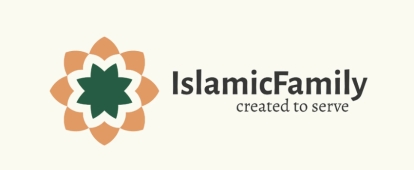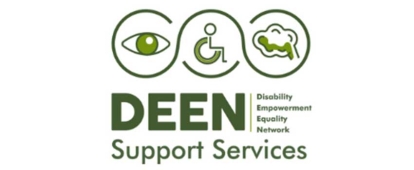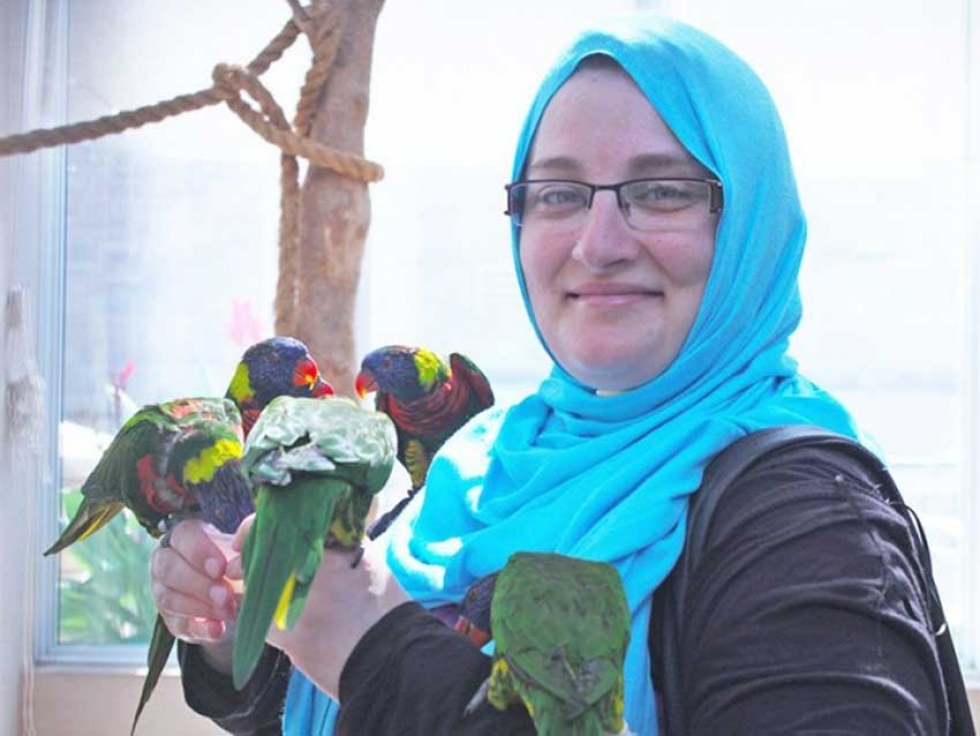 Syrian Canadian Sara Takieddin hopes to pay off her debts and raise awareness about the struggles facing many divorced immigrant women.
Syrian Canadian Sara Takieddin hopes to pay off her debts and raise awareness about the struggles facing many divorced immigrant women.
Sep
Debt, Divorce, and Disability: Crowdfunding Campaign Helps To Raise Awareness About Immigrant Women's Struggles
Written by Chelby DaigleSyrian Canadian Sara Takieddin crowdfunded on LaunchGood.com in order to pay off the debts she accumulated while struggling with mental illness and financial distress as an immigrant to Canada after her marriage ended badly.
In the campaign, Sara shares a great deal about her personal struggles with mental illness and disability. While hoping to raise money to help her become debt free, she also hopes that her story will help raise awareness about the struggles many Muslim women are facing who do not have immediate family in Canada.
Muslim Link interviewed Sara about her campaign and the issues it raises for our communities.
In your crowdfunding campaign, you are discussing several taboo subjects: mental illness, divorce, and debt. How do you feel you developed the courage to be so open about these personal struggles?
It was not easy at all. I waited for months until I finally took action. In general, I have serious anxiety when it comes to reaching out to people. I always have the fear of looking bad. It is a pattern in almost everything in my life. I went to Landmark, a self-improvement company, in my darker days when I worked 50-60 hours a week and had no social support at all. I wanted to connect with any human being. I’ve learned how to work around that anxiety to get what I need. I realized if I don’t ask I won’t get the help I need. Yes, there were valid judgement concerns; but then I realized if I speak out, I wouldn’t only be doing myself a favour.
A sister might read this and realize she is not alone and she too can speak out. I learned that all the good I say and do has a positive impact on at least one person which can be passed on to others. It is a form of paying it forward. I did not get any negative feedback at all, Alhamdulillah (Thank God). I was advised not to get too specific in my campaign, but I figured if I’m going to ask for money from people, I want to be as transparent as possible. If people don’t want to donate, then that is their right and I respect that. I did not want to deceive anybody. In addition, we’re human beings; we are not perfect and we all make mistakes. I’m not ashamed of what I learned through the journey so far.
You explain that you had always experienced depression and anxiety but it escalated after your divorce and led you on a downward spiral. What are some of the mental health impacts of divorce on women that you wish our communities would better understand?
I was a Syrian immigrant who came to Canada to be with my then-husband. When we divorced, I was completely on my own. My family couldn’t help because of what is happening in Syria. Also, due to my mental illness, I completely did not have the courage to ask relatives who I’m not that close to personally. In general, I think my situation is different than a lot of women who have family in Canada. Divorce can take a toll on anybody. It can make you feel like a failure, unworthy, broken, etc. Imagine how it’s like facing that completely on your own along with your mental illness and financial worries.
I couldn’t pay rent even though I was working. I felt like nothing I did was enough. My lease was done and the owner of the building sold the building and the new owners wanted the tenants out. I did get some support from family friends, and I stayed with them for a bit. Then as a permanent solution, one of the family friends suggested that I should get married so I have somebody to take care of me. I want the Muslim community to understand that marriage is not always the solution, especially not a semi-arranged one.
Marriage is a responsibility, not an escape. It adds to the whole awful experience when people push women to get married quickly. This is especially true after divorce, where we need to process and move on from the impact of what led to it and the aftermath of the divorce. Most women are not ready to handle all of this. At the very least, they should let the woman choose who and when they get married if they even choose to remarry, to begin with.
Do you feel that Muslim communities should find more ways to support women who have immigrated to Canada for marriage as they can so easily end up isolated and also in financial distress?
Absolutely! I’ve heard too many horror stories of how women who don’t even know the language, have children and are abandoned by their husbands. I see them getting government assistance like I was. Instead of just giving them a fish, the community needs to teach them how to fish so we can feed ourselves. Spiritual and social support is also important. The problem with just giving money is that when the money stops coming in, women will be at square one again.
That is what happened to me. I was on welfare and I got zakat money from a mosque. I was getting barely enough per month to pay rent and that was pretty much about it. Alhamdulillah, I started working again after I went back to school. Slowly, I was getting a decent income from just work alone especially when I started to put in the extra hours. I went off welfare, but I was still getting zakat money because I was starting a new job. I was planning to be completely self-sufficient for the first time in my life. I was working on it. Then I received a call from the masjid telling me that they can’t support me anymore because of the refugees coming in. I totally understand and it was good timing. It just upsets me that they didn’t help me to get a backup plan or even ask if I was going to be alright on my own. I still have mixed feelings about it. If this were to happen to someone who already has a job what are they supposed to do in such short notice? I was blessed that I was able to help myself with the help of the Canadian government, but I just felt completely left alone.
Why do you feel that our community often thinks the best solution for a woman in financial distress is marriage? Based on your experience, why is this not always a good solution?
I feel that our community doesn’t have the resources to take care of women and that a woman who needs help is seen as a burden to the community. Plus, they say a woman should not live by herself because it is haram (religiously forbidden) and people will talk. The fastest and easiest solution they can come up with is to marry her off to somebody, therefore becoming somebody else’s responsibility and they don’t have to worry about her. Our community forgets how people at the time of the prophet (PBUH) treated women who have no families. Having said that, I do believe that our community might have good intentions for divorced women, but just simply forget that in this day and age, marriage and the human psyche is a lot more complex than in the old days in our homelands where everybody knows everybody and life had fewer expectations from people in general. That environment is a different culture, lifestyle, political arena, and environment, compared to nowadays.
The impact of mental illness on staying in gainful employment is often not discussed within Muslim or mainstream communities. Why do you feel this is? Based on your experience, what would you like readers to better understand about why mental illness can make it very difficult to work?
I get the impression that a lot of people, in general, do not believe mental illness is a real issue. There is stigma for sure. Some believe that mental illness is a hoax that was created to profit drug companies. Some people are ignorant to the fact it is a real chemical imbalance in the mind and call depression just lack of faith or not being grateful because others have it worse. All these people don’t understand that mental illness, in general, is also physically draining. The mind and body work together. If one is not working the way it should the other would get affected as well. It is not a choice.
In my experience, medication helps in the short run to be able to function enough to be able to do the hard mental and physical work leading to recovery. It drains energy to work through trauma because we relive the traumatic experience on a subconscious level as we recover. Sometimes, even after sleeping 8 hours, I feel like I only got a couple of hours of sleep in the morning and it is sometimes hard to get out of bed, even if I have to go the bathroom. It physically and mentally hurts. Instead of telling us we’re lazy, or too sensitive, we should snap out of it and so on, I pray people in our community and in the mainstream communities understand that mental illness is a seriously hard struggle and they should respond with empathy and compassion.
Your accumulation of debt in order to make a life in this country also raises the question about the need for Muslims to provide more interest-free loans. Do you feel this is something our communities should be investing more in?
Yes, yes and YES!
Interest is a huge problem for Muslims. I know of a Muslim group that provides people with interest-free loans in the Greater Toronto Area. It’s called Beneficent and it is based in Mississauga. My campaign’s coach, Khalida mentioned it to me and I thought we need more of this. I imagine if I knew about this before I accumulated my debt, I probably would have paid my debt off by now and I wouldn’t have to deal with paying the interest which makes it hard for the debt to decrease.
What other ways could Muslims help you with rebuilding your life on top of helping to pay off your debt?
Spiritual and social support. My deen (religion) has been affected negatively because I’ve isolated myself for too long. People who supported me a lot were non-Muslims. I sincerely have no problem with that. People are people. I just didn’t feel I belonged and I felt that the community and other Muslims I know didn't fathom how lonely and difficult it was. I honestly felt that if the community abandoned me and nobody cares that means that Allah (SWT) has truly forsaken me because I must have done something so terrible that I was being forsaken. I was that alone.
I now acknowledge that Allah (SWT) has His plan for me and alhamdulillah (Thank God), I do not feel that way anymore because my best friend and sister in Islam, Aneesa and my husband, Rob now are the best support Allah (SWT) can provide for me. I understand that it can be awkward to reach out to somebody in my situation. Our community lacks the knowledge of what truly is mental illness. I just wish there are Muslims who can be our advocate or/and our social support. Women like me could benefit from someone who will hold my hand and encourage me in a tactful and empathetic manner to practice my deen the way I once did and even better. I don’t have close family here. It is just me, my husband and best friend who are both Muslim converts and do not have a Muslim family either. Social support is what I personally need. I want to be part of the Muslim community again and due to my trauma, my anxiety gets the best out of me sometimes, making it difficult to reach out.
Anything else you would like to add?
I am sincerely thankful that people from all over the world whether they are Muslims, Non-Muslims, family, friends and even strangers have contributed to help me out with my debt. The experience of putting myself out there, reaching out and people responding has been an eye-opener for me. My hope in humanity is getting restored. I want to thank Muslim Link, specifically Chelby, for giving me the opportunity to share my story and I hope it might help somebody who is in a similar situation or help to simply start a conversation about mental health in the Muslim community. I’m a certified peer specialist and a community service worker. I’m ready to take part in that conversation and take action to help people in our community with mental illness. We all need each other.
Jazakum Allah Khayr (Thank you)!
This article was produced exclusively for Muslim Link and should not be copied without prior permission from the site. For permission, please write to info@muslimlink.ca.

